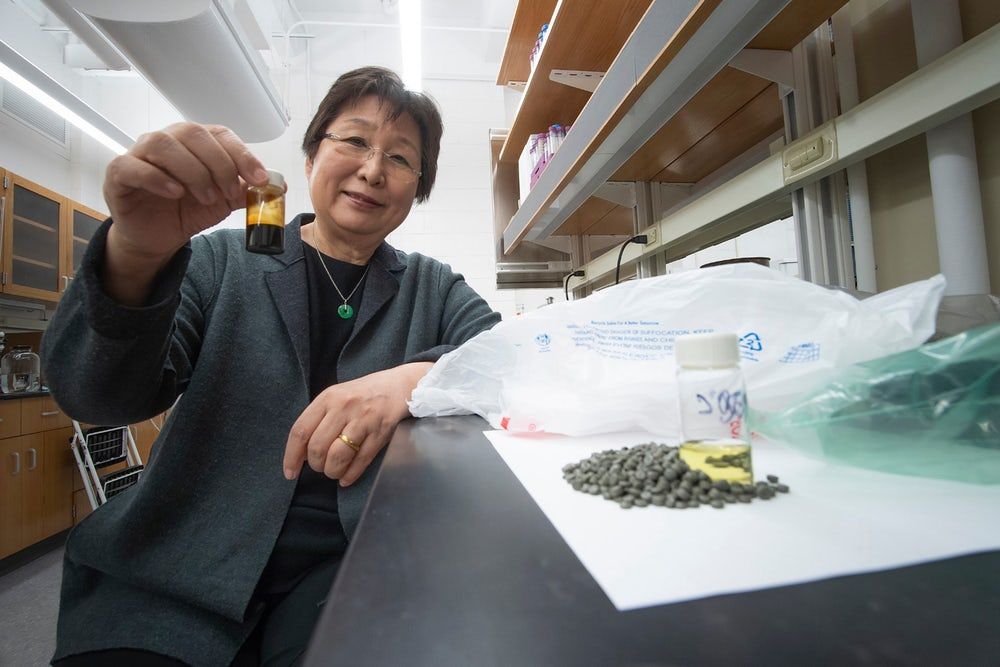A new chemical process could turn about 90% of the world’s grocery bags, shrink wrap, and other polypropylene waste into clean fuel.
Grocery bags and other trash could be melted down to yield useful products like oil and gas.
The problem: The world’s landfill sites and oceans are being flooded with plastic. A mere 9% of the 8.3 billion tons of plastic produced over the last 65 years has been recycled, according to the United Nations. Over eight million tons of plastic flow into our oceans every year, harming wildlife.
How it works: The technology works on polyolefin waste, the sort of plastic used for grocery bags, toys, and shrink wrap. This sort of plastic accounts for about 23% of plastic waste, according to researchers who describe the process in a paper published in Sustainable Chemistry and Engineering. The new technique uses a process called hydrothermal liquefaction, in which very high temperatures melt pellets of polyolefin and then dissolve them in water. The by-products of this process are oil, gas, or solvents.
